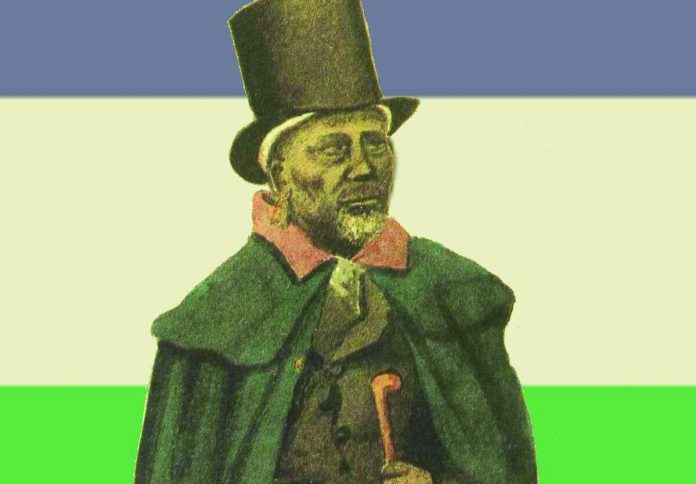‘Mathatisi Sebusi
AS Lesotho prepares to commemorate the life of its founder, King Moshoeshoe I, on March 11th, we reflect on a conversation in 2024 where King Letsie III recounted the origins of the Basotho nation.
This time last year, King Letsie III sat down with youth representatives from Lesotho’s tertiary institutions to discuss the life of King Moshoeshoe I and the nation’s founding.
This meeting was organized as part of Lesotho’s bicentennial celebrations, marking 200 years since the country’s establishment by Moshoeshoe I in 1824.
Before delving into Lesotho’s history, the King shared how he had been invited by the Oxford Union, the student union of Oxford University, to speak about his journey as the King of Lesotho and the challenges he had faced.
He expressed his honour at being given the opportunity in 2024 to recount Lesotho’s history to the country’s youth.
King Letsie III emphasized that March was a significant month for Basotho, as they commemorated the legacy of their founder, King Moshoeshoe I.
He said the country took this time to appreciate and celebrate the achievements and the enduring impact of the revered Moshoeshoe I.
The King praised God for bestowing Lesotho with Moshoeshoe I, whose wisdom, valour, and determination enabled him to protect Basotho from their enemies. He stated that their sacrifices had “left behind a lasting legacy for the nation”.
Letsie III explained that the Basotho nation was part of the broader Bantu people, comprising various clans that shared languages, customs, traditions, and lineages.
He listed the diverse clans that had contributed to the formation of the Basotho nation, namely Bafokeng, Bakoena, Bahlakoana, Makhoakhoa, Batloung, Bakhatla, Makholokoe, Baphuthing, Batlokoa, Basia, Bataung, Bakubung, Batsóeneng and Baphuthing (among others).
The King also emphasized the importance of carefully narrating the history of the Basotho nation, ensuring that all people understood the diverse origins and unity of the different clans under the leadership of King Moshoeshoe I. He said this unity was crucial in enabling Basotho to overcome the challenges they faced.
While the clans came together under Moshoeshoe I’s leadership and protection, they did not abandon their unique customs and traditions.
The King noted that Moshoeshoe I began his rule in Butha-Buthe in 1820, where he forged relationships with other clans to grow and safeguard the nation.
The King highlighted the pivotal partnership between Moshoeshoe I and Chief Hlabeli Lechesa in 1822, which marked the beginning of Basotho unity as a single nation.
In 1824, with the assistance of the Matebele (generic term for aMahlubi, aMaBhele, aMazizi and Amangwane), Moshoeshoe I and his people found refuge in Thaba-Bosiu after being attacked by the Batlokoa at Butha-Buthe.
King Letsie III acknowledged that while this historical summary was concise, it underscored the breadth and complexity of Lesotho’s past, much of which remained unfamiliar to many.
He emphasized the importance of commemorating special events like Moshoeshoe’s day, as they played a pivotal role in reminding Basotho of their roots and significance.
As Lesotho celebrated its bicentennial in 2024, the King highlighted that 1824 was the year when Basotho clans united under Moshoeshoe I’s leadership to form a single, cohesive nation.
He noted that even during the subsequent challenges and wars, Basotho maintained their customs, principles, and values inherited from their founder.
However, the King expressed concern about the current complex challenges facing Lesotho, including rising crime, homicides, high youth unemployment, drug and alcohol abuse, as well as the impact of pandemics and climate change.
He said these issues posed a threat to the founding principles and unity of the Basotho nation.
Addressing the youth directly, King Letsie III expressed his trust and hope that they would be guided by Moshoeshoe I’s values to help rescue the country from its difficulties.
He urged other nations to appreciate the journey of the Basotho nation, from its origins in Menkhoaneng and Butha-Buthe to its establishment in Thaba-Bosiu, and to celebrate the unity and resilience that had sustained the country to this day.



